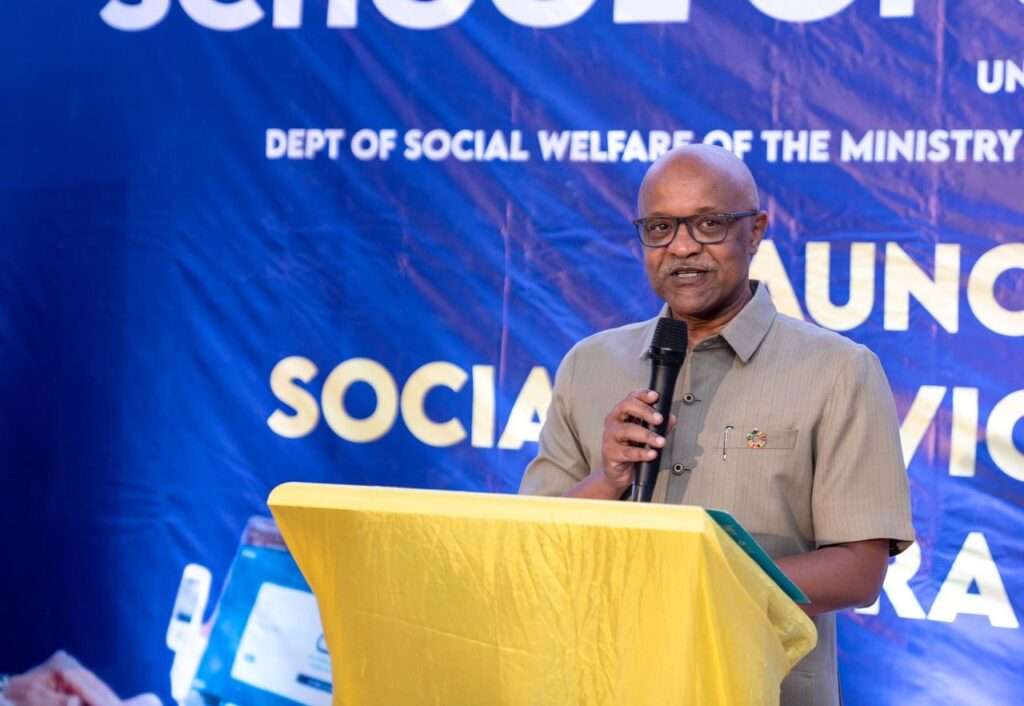The Ministry of Gender, Children, and Social Protection (MoGCSP), in collaboration with key partners, has spearheaded a significant initiative to professionalize social work practice and training in Ghana.
Hon. Darkoa Newman, the Minister of MoGCSP, announced this initiative during the launch of the Social Services Workforce Training program. The program, in partnership with the United Nations International Children’s Emergency Fund (UNICEF) and the World Food Programme (WFP), aims to bolster the social welfare workforce and enhance the capacity of staff at all levels across the country.
“Coupled with the legal and regulatory framework for social work practice, this training will help address potential conflicts-of-interest issues in delivering integrated social services to our clientele.”
Hon. Darkoa Newman, the Minister of MoGCSP
Hon. Newman emphasized the transformative potential of this training program, noting that it will provide a solid foundation for the broader social work profession.
The initiative aligns with the Ministry’s mission to ensure gender equality and equity, promote the survival, social protection, and development of children, and support vulnerable and excluded populations, including persons with disabilities.
Hon. Newman highlighted the need for robust systems and tools to promote, protect, and strengthen the delivery of Integrated Social Services (ISS) in Ghana.
The Gender Minister said in 2020, with funding from UNICEF, the MoGCSP conducted a comprehensive Social Welfare Service workforce capacity assessment. The findings revealed that Ghana had only 49% of the workforce needed for effective social service delivery.
This gap underscored the necessity for a competent, adequately resourced, and trained social service workforce to provide essential services and support to vulnerable populations.
“The assessment identified various barriers to the effective functioning of Ghana’s social service system and recommended the development of clear training guidelines for these paraprofessionals.
“Addressing these barriers is crucial to filling the gaps in social service provision and ensuring sustainable national development.”
Hon. Darkoa Newman, the Minister of MoGCSP
Training and Capacity Building

The Social Services Workforce Training program, spearheaded by UNICEF and implemented through the School of Social Work (SSW), is set to benefit 60 individuals in its first batch.
Mr. Osama Makkawi Khogali, UNICEF Country Representative for Ghana, underscored the importance of equipping district social welfare and community development personnel with essential skills and knowledge.
“While the work of social workers is skilled, complex, and challenging, it often goes unrecognized as a professional occupation. Instead, they are often viewed as individuals who carry out charity work,” Mr. Khogali remarked.
Mr. Khogali stressed the need for greater public understanding of the social worker’s role and value to drive demand for services and informed investment decisions.
Mr. Khogali also highlighted the significance of finalizing and adopting the Social Work Profession Bill. This legislation will guide the establishment of a Social Work Council and regulate social work practice in Ghana through registration and licensing, ensuring a professional standard across the board.
Support from WFP and Long-Term Goals
Madam Anna Mukiibi-Bunnya, Deputy Country Director of WFP, echoed the importance of professionalizing social work to achieve broader social protection goals.
“Social protection systems do not only improve productivity but also allow families to invest in health, education, and food security. The role of social workers is vital in achieving sustainable development goals and ensuring that no one is left behind.”
The WFP remains committed to partnering with the SSW to build capacity and enhance service delivery in Ghana.
“Knowledge acquisition will enhance service delivery and improve social services, which is why we will continue to support the training of more social workers to strengthen social protection systems in Ghana,” Madam Mukiibi-Bunnya added.
Additionally, Rev. Dr. Comfort Asare, Director of the Department of Social Welfare, provided insights into the history and ongoing contributions of the SSW.
Established in September 1945, the SSW has been pivotal in training generic social workers to serve in various capacities, including social workers, rehabilitation officers, community development officers, probation officers, and hospital social workers.
“Our programs are designed to equip students with the knowledge, skills, and competencies needed to make a positive impact in their communities and beyond,” Rev. Dr. Asare stated.
Over the years, the SSW has trained approximately 1,501,552 students, continually striving to maintain its reputation as a premier institution for training frontline social workers in Ghana.
The professionalization of social work practice and training by MoGCSP and its partners marks a significant step towards enhancing the effectiveness and recognition of social services in Ghana.
By addressing workforce capacity and regulatory frameworks, the initiative aims to ensure that social workers are well-equipped to support vulnerable populations and contribute to sustainable national development.



















